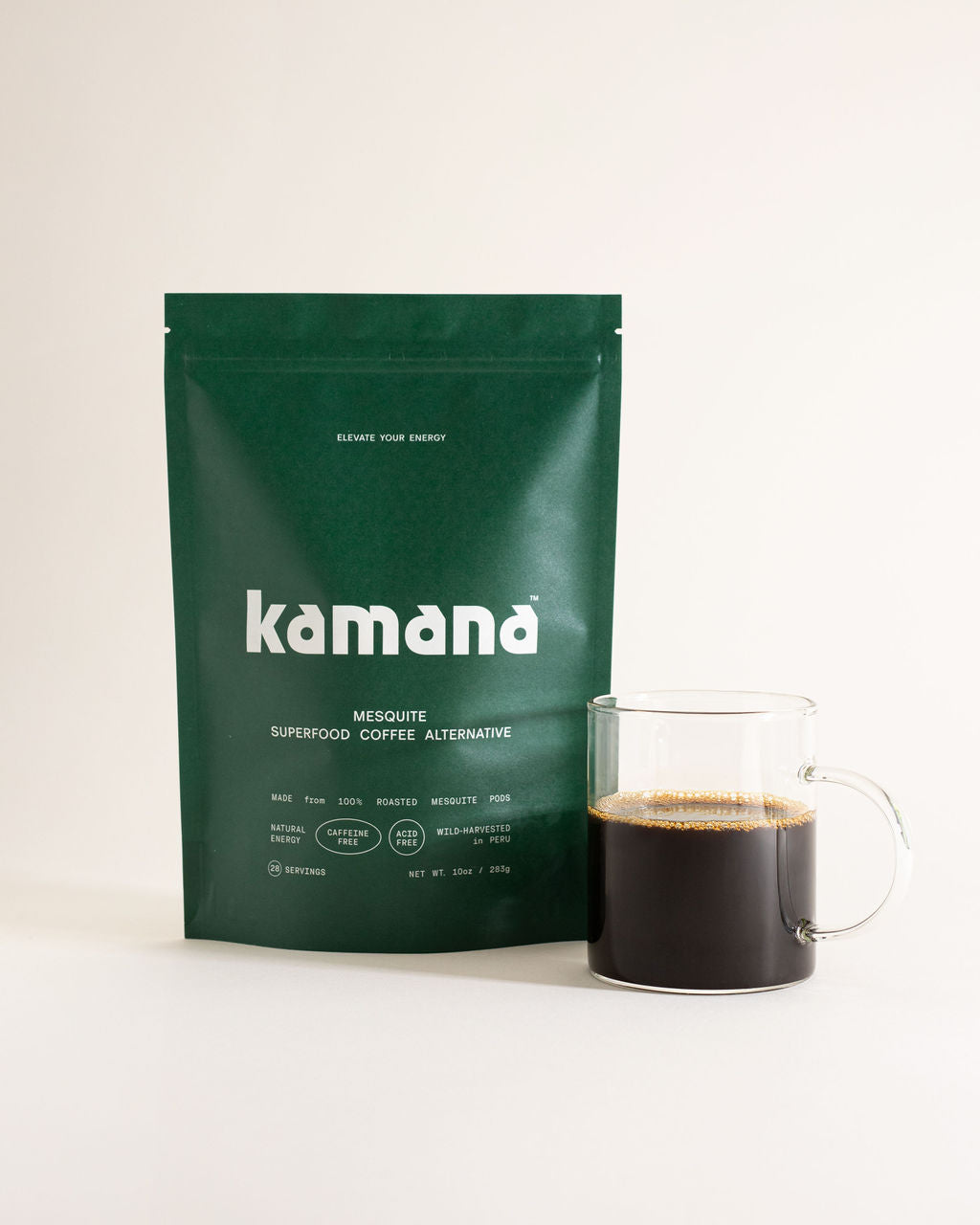
Elevate Your Energy
A CAFFEINE CONSCIOUS MOVEMENT
We’re on a mission to help you elevate your energy, naturally
Billions of people around the world rely on caffeine to help them get through the day. But have you ever stopped to think about what it actually does to your body? While caffeine can be a very powerful tool when consumed with intention, most people are unconsciously addicted to that quick hit of energy that often does more harm than good to your body.
At Kamana, we’re on a mission to change the way we think about and consume caffeine and help you elevate your energy, naturally.

THE TRUTH ABOUT CAFFEINE
Caffeine doesn’t actually give you more energy
More than 2.5 billion cups of coffee are consumed every day on top of energy drinks, tea, soda and chocolate, making caffeine the most widely used substance on the planet.
While it can be a tool to boost your energy, mood or performance in the short term, many don’t realize that caffeine doesn’t actually give you more energy, and can even hurt your body's ability to generate energy naturally in the long run. Caffeine borrows energy from the future to fuel you in the moment and leaves you more depleted, which is apparent in how it actually works in your body.
+ How caffeine works in the body
Caffeine works by blocking adenosine in your brain, a neurotransmitter responsible for promoting rest and relaxation.
Adenosine gradually accumulates in the brain throughout the day, signaling to the body that it's time to go to sleep. When consumed, caffeine binds to adenosine receptors, preventing adenosine from attaching to these receptors, and therefore preventing you from feeling tired. However, once the caffeine wears off, the built up adenosine rushes in, leading to that afternoon crash we get from coffee.
Hence, caffeine doesn’t actually give you more energy, it just delays feelings of fatigue.
Although caffeine gives you a temporary surge of energy and does have some health benefits, many people experience the negative side effects, oftentimes without even realizing it. Negative effects include:
- Stress & Anxiety
- Adrenal Fatigue
- Gut Issues
- Premature aging
- Hormonal Imbalances
- Poor Sleep
- Decline in brain function
& lots more...just do a quick Google search or ask ChatGPT :)
Side note: The impact of caffeine varies person to person and how you respond to it is largely determined by your genes. (More to come on this in another post soon.)
Regardless of your tolerance, consuming caffeine every day can lead to addiction or dependency where your body becomes reliant on caffeine to function normally. Have you ever felt like you can’t get through your day without caffeine or related to the popular phrase, “Don’t talk to me until I’ve had my coffee?”
Yeah, we’ve been there too, so we’re here to remind you that you don’t need caffeine to get through the day. You’ll probably be better off without it, and bonus, if you become more intentional about the way you consume caffeine, you may be able to use it as a tool instead of a crutch.

So how do we actually get more energy?

Natural energy is the well upon which you can draw energy from when your body is homeostasis, unlike when it’s on caffeine. You’d be surprised to realize how much your body can regulate energy when it’s not dependent on caffeine.
Caffeine addiction is a cycle that prevents you from accessing your own energy sources—many people realize they are no longer quite so tired when they wean off of caffeine.
Many physical, emotional, and mental factors influence energy. Life ebbs and flows, and in addition to energy-giving factors, there will always be more stressful and energy-taking aspects of life.
These things include anything zapping your energy, such as doom scrolling, toxic relationships, a stressful job, chronic illness, jealousy and envy, mental health challenges, life responsibilities, and so much more.
While some of these energy drainers are things we can actively seek to minimize, others may be out of our control and par for the course at this point in our lives.
There are always ways to incorporate energy givers into your life, and your real energy givers are fundamentals in foundational health. These pillars of health are referenced by doctors and medical research around the globe, and have been integrated into both modern medicine as well as ancient healing traditions for millenia.
Natural Energy Givers
Rooted in the 6 foundational elements of health
SLEEP
Sunlight
Movement
Mindfulness
Nutrition + Hydration
Connection
Sleep is one of the most essential elements for health. Sleep could be a whole textbook on its own, but we’ll start simple: aim to get at least 7-8 hours of sleep per night.
Integrate some sleep hygiene if that’s difficult such as making sure your bedroom is completely dark, wearing an eye mask, turning off screens an hour before bed, or coming up with an evening ritual like a calming tea, an Epsom salt bath, and/or some evening reading.
There’s a reason many people get sad and have low energy in the winter: getting sun is essential for human health and vitality—from hormone production (such as Vitamin D) to your circadian rhythm and beyond.
Science suggests to get sunlight within 30 minutes of waking—preferably outside, but if that’s not accessible, bask in a window! Fun fact: your body can typically absorb Vitamin D when your shadow is shorter than your physical body (this indicates the sun is at its peak saturation).
Find your flow—whether walking, pilates, yoga, cycling, weight lifting, or otherwise. The critical piece here is to move your body in a way that feels good!
Movement helps with so many things, including regulating blood sugar, improving cardiovascular health, building strength, and elevating your mental health (we’re all for silly little mental health walks!), helping lead to increased energy levels.
We love a mindfulness routine—and it’s all about finding what works for you.
This could be a morning ritual of brewing a cup of Kamana and sitting down to journal for 5-10 minutes, a 20-minute daily meditation (we love this one from Open!), stretching, creating art, writing poetry, or just sitting and being mindful of your breath. Connecting inwards and regulating your nervous system significantly affects your energy and presence throughout the day.
We’re not going to lecture you on eating your veggies (though, might we gently suggest doing so?), but what you physically put into your body can make a huge difference in your energy levels.
Play around with which elements of your diet make you feel the best—for many, it’s ensuring you’re getting enough protein; for others, it’s playing around with how carbs make you feel. Don’t skimp on hydration—herbal teas, water, electrolyte drinks, and your morning cup of Kamana are all great ways to increase your fluid intake.
It cannot be emphasized enough how vital social connections and relationships are to our mental wellbeing and, therefore, our energy.
People are different regarding social needs—some of us are introverts, while others thrive on being around others—but humans are meant to be in community. Whether grabbing coffee with a friend or FaceTiming a loved one on your daily walk, prioritizing social connections can go a long way in nourishing our wellbeing.

WHY MESQUITE
The superfood that will help you finally cut caffeine
(Don’t worry, you still get to keep the flavor and ritual you love about coffee)

CHALLENGE
30 Days to
Elevate Your Energy
We’re here to help you heal from your dependency on caffeine and become more conscious of your relationship to your energy. Here’s our 30-day caffeine-free and wellness challenge. Join us?
Each person’s body and needs are different, so listen to yours and feel free to make the challenge your own. If one of these things drains more energy than it gives, move on or swap it out!
No Caffeine
If you’re weaning off, we recommend halving your caffeine intake daily until you’re down to zero! Feel free to take it slower if needed. Swap your coffee for Kamana—all the flavor and ritual you love without the jitters, crash, or acidity.
Sleep
Hit the hay each night on a predictable schedule and aim for 8 hours of beauty sleep. Your body will thank you.
Sunlight
Aim to get 10-20 minutes of sunlight daily, ideally within 30 minutes of waking up. Not able to get outside? Stand in a sunny window!
Movement
Aim to get in at least 15-20 minutes of movement each day, whether it's hitting the gym or going for a stroll.
Nutrition & Hydration
Each person’s nutrition needs are personal, so pick a nutrition goal (i.e., eating a veggie at every meal, eating more protein, etc.) and run with it. Aim for a minimum of 6-8 cups of fluids daily (yes, Kamana counts!).
Connection
Aim for at least two social connection points per week. These could be a walk with a friend (getting in your movement and sunlight goals!), going out to dinner, calling up a loved one, or whatever makes sense for you.

